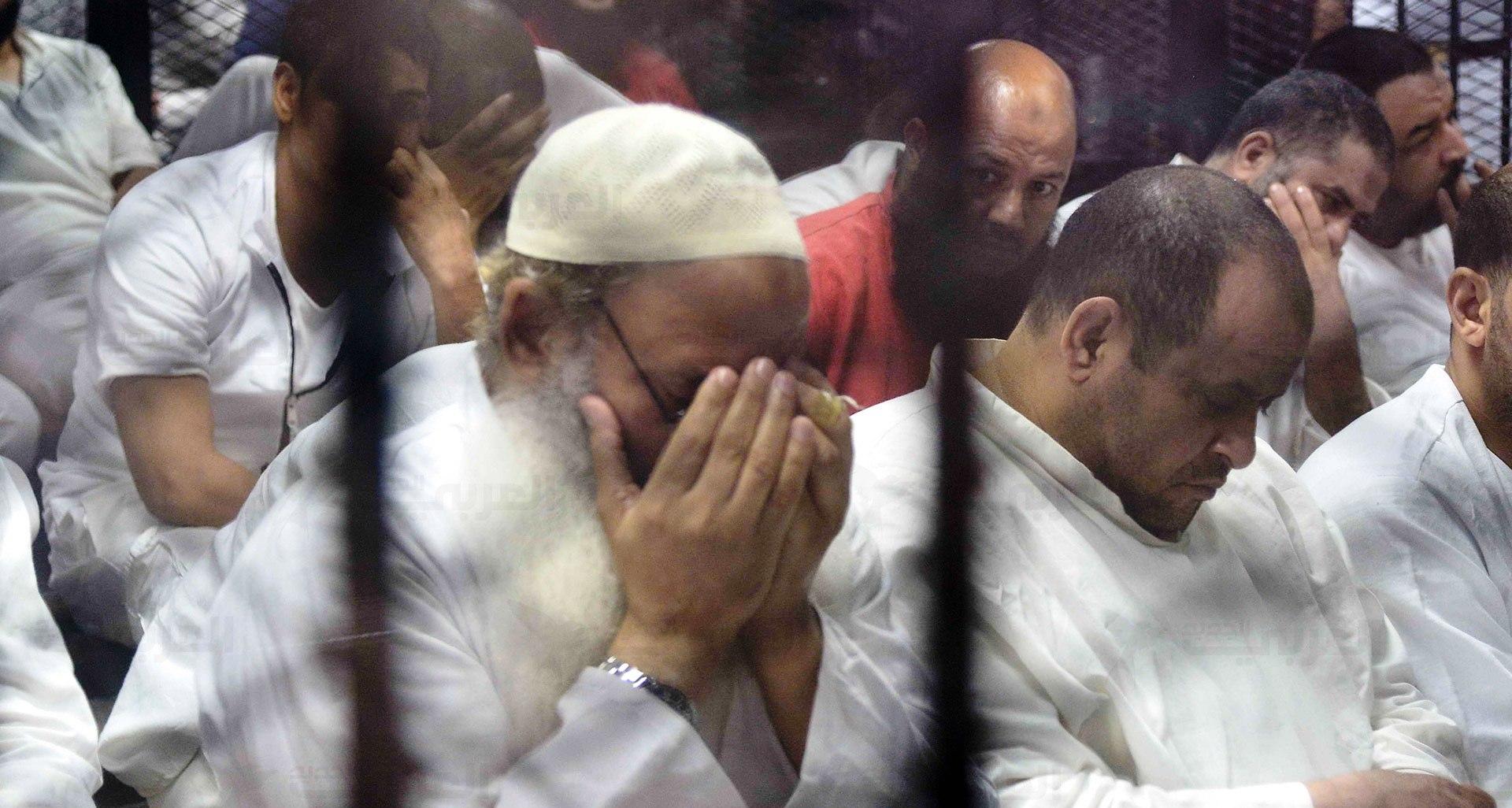The Egyptian authorities’ execution of 17 people last week revealed that the Ministry of Interior had made flagrant legal violations of articles contained in the Criminal Procedure Law.
The Egyptian authorities carried out the death sentence by hanging against 17 opponents of the military coup against the late President Mohamed Morsi in 2013. The case is known in the media as “storming the Kerdasa Police Station.”
Many human rights defenders and activists confirmed that the defendants did not have a just trial. Article (472) of the Criminal Procedure Law stipulates that “relatives sentenced to death must meet him on the day set for the execution of the sentence, provided that this is far from the place of execution.” This has not taken place, which represents the first violation of the law.
According to a statement by the “Stop the Death Penalty in Egypt” organisation, the death sentence was carried out without informing their relatives of the execution date and not allowing them to see them. The same article also states that “if the religion of the convict imposes confession or other religious obligations before death, the necessary facilities must be made to enable a cleric to meet him.” No one met the sentenced that day. The third offence was according to Article 474 of the same law when it said that “the execution of the death penalty must be in the presence of one of the attorney general’s attorneys. The lawyer of the convicted person must always be authorised to attend.”
In clear violation of the last paragraph of the article, the Egyptian authorities carried out the verdict when none of the defendants’ lawyers were authorised to attend the execution of the sentence, according to what was confirmed by the Stop the Death Penalty in Egypt organisation.
The organisation quoted one of the attorneys who was contacted by the campaign as saying that the families had received phone calls from the prison administration to inform them that they had received the bodies of their relatives from the morgue. The campaign said that “since early October 2020, and until now, it has monitored many cases in which death sentences were carried out without informing the families or lawyers of the execution date.” It continued, “No one can truly understand the procedures that were followed before and during the execution, such as interviewing the religious preacher.” It added, “The behaviour of the Ministry of Interior in this regard is in violation of the right to make information available and circulate it, which undermines the transparency and integrity of the criminal justice system in Egypt in the case of executions.”
Although Article (475) of the same law stipulates that “the death penalty may not be carried out on official holidays or holidays related to the religion of the convicted person,” the article did not specifically mention the month of Ramadan. That makes the execution of the judgment during the holy month not against the law. However, Stop the Death Penalty in Egypt said in its statement that it is customary for the Prisons Authority sector in the Ministry of Interior to not carry out death sentences during the month of Ramadan. The campaign said that fasting is an important religious ritual given its spiritual importance, and the days of fasting also have a special sanctity for all religious sects.
During the past years, many countries, international bodies, and human rights institutions have called for a moratorium to implement the death penalty as a criminal deterrent and replace it with penalties, such as life imprisonment or working for public service and other alternatives. In its approved annual resolution, this matter was confirmed by the United Nations General Assembly issued in January 2018, which called for a moratorium on the death penalty worldwide, which had the support of 121 countries.





Recent Comments